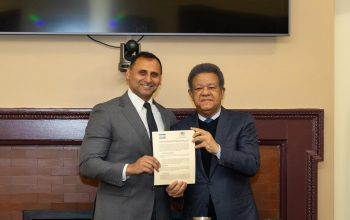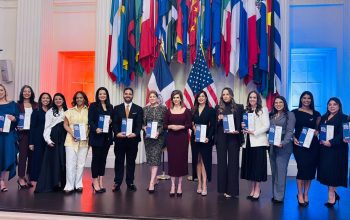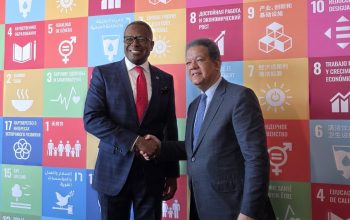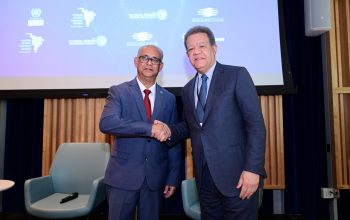news
Dr. Leonel Fernández Recommends Internationalizing All Universities
November 28, 2016
From Friday, November 26, Fernández, in his role as president of the EU-LAC Foundation, began a work tour through Europe to include stops in Madrid, Berlin, and Hamburg.
President of Global Foundation for Democracy and Development (GFDD) and Fundación Global Democracia y Desarrollo, Dr. Leonel Fernández expressed the need for efforts to be made to internationalize all universities worldwide, with the aim of expanding
student capacities as well as access to higher education.
Fernández, former president of the Dominican Republic, made the proposition during a conference on “The Future of Higher Education,” held at the University of Alcalá in Madrid with the attendance of dozens of academics and students, as well as special guests.
In his speech Fernández noted that his
proposal would not just involve internationalizing universities through student exchanges and visiting professorships, but also reflecting on new interdisciplinary and inter-university degrees and training programs to be created in order to properly connect students and teachers with the new demands for global society.
In the opinion of the former head of state, this effort should involve rethinking the structure of universities as well their financing, foundations,
student mobility, and faculty profiles. In that vein, he stated that synergies must be created to expand the quality of knowledge and training, commenting that going forward universities should be more universal and less local.
During his appearance, Fernández also noted the great transformations that occurred in higher education during the 20th century, highlighting such crucial trends as widespread growth in access, internationalization, and the digital revolution in
the field.
Likewise, he stressed how in recent decades higher education has globalized with the consolidation of English as the lingua franca of the global academic and scientific community and some 3 million students studying outside their home countries – a figure set to rise to 8 million by 2020, with the United States receiving and China sending the most international students.
He added that information and communication technologies (ICTs)
have created a universal medium for instant contact and simplification of scientific communication, making viable the mass access to scientific publications and databases.
He likewise highlighted the growth in massive online open courses (MOOCs), which help extend high-quality higher education anywhere an Internet connection exists but also have the potential to widen the linguistic and cultural gap that currently prevails in cyberspace.
With respect to
the future Fernández said that steps should be taken to adapt higher education institutions to new social demands, improve universities’ quality and competitiveness, and make the design and application of curricula more flexible while expanding funding for higher learning.
“Traditionally the difference between developed and developing countries has been based on unequal economic development. In the 21st century this difference is basically due to the
information and knowledge gap between countries,” he stated.
“For that reason, never before now have universities had such a relevant and important role to play as one of the main instruments of transformation of humanity,” said Fernández, who began a work agenda this Friday in Europe with stops in Madrid, Spain, as well as Berlin and Hamburg, Germany, as president of the EU-LAC Foundation.
Related Link:
http://leonelfernandez.com/noticias







